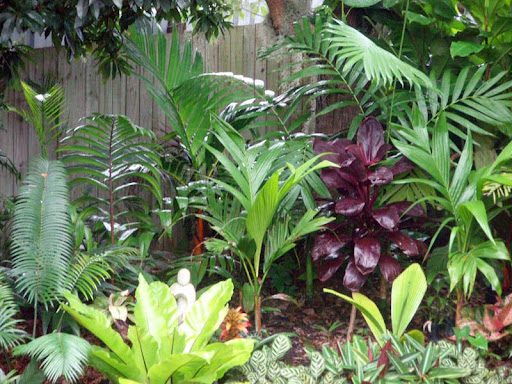
People have different preferences when it comes to gardens. Some prefer their gardens to be neat without a tree in sight, and others love the unkept look of fallen leaves and long branches.
What if you have a large tree in your garden that’s blocking the morning sunlight?
You can always remove it, but can tenants remove plants from a rented property?
Yes and no. It’s within your rights to remove dead weeds or flowers from your garden, and you can mow the lawn regularly. However, when it comes to trees and plants that are alive and well, you can’t remove them without asking the landlord’s permission.
Knowing what changes are allowed without asking can save you from sticky situations with your landlord. Here’s everything you need to know about the matter:
Can Tenants Remove Plants?
If you’re renting a property and considering making changes to the garden, it’s important to understand the regulations regarding the removal of plants.
Here’s the lowdown on whether tenants can remove plants from a rented property.
The Golden Rule: Ask First
It’s generally unwise to start removing your plants without notifying your landlord first.
Doing so might have some consequences, possibly in the form of a breach of duty notice from your landlord.
Before considering any garden renovations, it’s advisable to review your rental agreement for any restrictions on plant or tree removal.
If you find no restrictions, you can always communicate with your landlord to get approval first and prevent any misunderstanding.
Exceptions to the Rule
There might be some situations where you can justify removing a plant without prior permission.
For instance, if a tree is blocking your access to something essential in the garden, like your shed, you might have a case. However, your landlord might still argue that the plant was perfectly fine and that you should have asked first—rightfully so.
In all cases, it’s better to get permission in writing when making a major change to your garden. Otherwise, Your landlord might ask you to replace any plants you’ve removed.
Keep It Simple and Document
While you might not be able to make major changes to the garden of your rental, there are still some basic maintenance tasks you can do.
Pulling out dead weeds, giving the lawn a trim, and keeping things tidy are generally safe.
If you find yourself at odds with a particularly picky landlord, it’s better to take some photos of any plants you plan to remove, especially if they’re dead or clearly in need of removal.
Documenting will allow you to make your case if the landlord believes major changes have been made without approval.
If you’re really keen on maintaining the garden, it might be worth discussing with your landlord the possibility of hiring a third party to take care of it. This way, you can keep the garden looking sharp without causing any issues.
Can Tenants Remove Plants That They Grew?
If you’ve grown some plants during your time in a rental and wish to take them with you when moving out, it’s important to consider the legal framework.
In the world of real property law, plants are often classified as fixtures, meaning they’re considered part of the property and should typically stay put when you move out.
So, if your rental agreement states that fixtures remain with the property, you might need to part ways with your plants.
Some agreements may permit plant removal, but often with conditions, such as restoring the property to its original state.
That means ensuring the soil is levelled and leaving the ground looking just as tidy as when you first rented the place.
When in doubt, it never hurts to communicate with your landlord. Let them know about the plants you’ve grown and see if you can reach a mutual agreement. It’s even better to clear everything out at first when renting, so you’ll have everything in writing.
What If You Removed Plants Without Asking the Landlord First?
So, you’ve taken matters into your own hands and removed some plants from your rental property without giving your landlord a heads-up.
Here’s what might happen next.
Notice of Breach of Duty
Removing plants without permission is a breach of your duties as a tenant, and your landlord is likely to take notice. You might receive a formal notice of breach of duty, letting you know that you’ve crossed a line.
Depending on the terms of your rental agreement and the severity of the situation, your landlord might require you to undo the damage. This could mean replacing the plants you removed or even paying compensation for the loss.
Re other types of breaches, read ahead for whether a tenant can rent out the property.
Consequences in Short-Term Rentals
Not all rental agreements are created equal. In short-term rental agreements, where turnover is frequent, landlords might be particularly vigilant about enforcing their property rights. So, if you’re renting on a short-term basis, be extra cautious about making any changes without permission.
Ultimately, removing plants without your landlord’s consent can lead to some sticky situations. It’s always best to communicate openly and follow the proper channels to avoid any unpleasant surprises down the line.
What Changes Can a Tenant Make to a Rental Property?
Tenants don’t have full liberty when it comes to making changes to the property. Some minor changes are allowed, but other than that, they need permission for any change that’ll alter the property.
Read on for information on finding out who manages a rental property.
Here’s a rundown of the changes you’re allowed or not allowed to make:
Changes Without Permission (Generally Acceptable)
There are changes you can make without your landlord’s permission without facing any consequences:
- Adding curtains without removing the old ones
- Adding a lock on the letterbox
- Installing a wireless doorbell
- Installing window insulation film (non-permanent)
- Adding wall anchors
- Adding LED light bulbs without new light fittings
- Installing removable safety devices
Changes Requiring Permission (Reasonable and Typically Approved)
These are changes that require permission, but your landlord will likely easily agree:
- Painting the house
- Installing weather seals
- Installing child safety gates
- Installing picture hooks
- Adding screws for wall mounts
Changes the Landlord Can Refuse (Generally Not Allowed)
These are changes that the landlord will likely refuse, even if you ask for permission:
- Any change that significantly alters the property
- Any change that increases maintenance costs
- Any change that doesn’t comply with legal requirements
- Any change to a property with heritage protection
Final Thoughts
In conclusion, while tenants can make certain changes without permission, like adding curtains or installing non-permanent fixtures, it’s essential to tread carefully when it comes to removing plants.
Always communicate with your landlord before making significant alterations to the property to avoid any misunderstandings or breaches of agreements.
By respecting the boundaries and seeking approval when necessary, tenants can maintain a positive relationship with their landlords and enjoy their rental space hassle-free.








